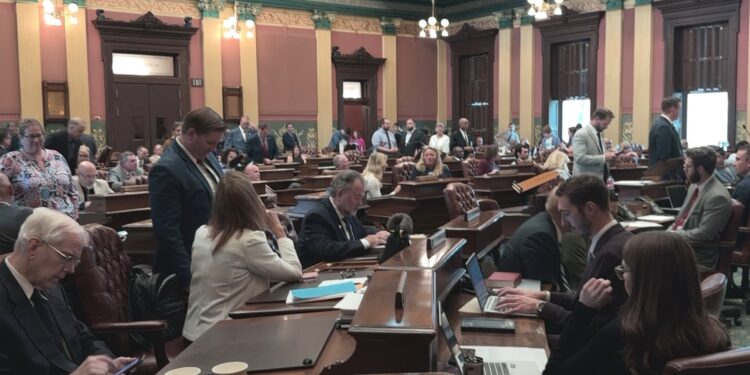LANSING, Mich. (WZMQ) – Michigan lawmakers are advancing two major policy packages that would reshape how the state oversees taxpayer-funded projects and how it responds to threats against elected officials.
The first proposal, Senate Bill 596, focuses on legislatively directed spending, the line-item funding lawmakers secure for local or regional projects. The bill would impose new transparency requirements, including detailed public reporting, eligibility criteria for applicants, and independent audits to verify how state dollars are used.
House Speaker Matt Hall (R-Richland Township) said the reforms are aimed at restoring public trust in the process. “We have a process where money goes out the door without real answers,” he said, adding that stronger oversight would ensure “taxpayers can see the results.”
Under the bill, the Department of Technology, Management, and Budget (DTMB) would have the authority to pause or reject projects that fail to follow spending rules. Lawmakers could also face penalties if funds are misused or misreported.
A second package addresses safety and privacy concerns for elected officials, following what lawmakers say is a steady rise in threats directed at public figures. House Bill 4397, known as the Elected Officials Protection Act, would allow legislators and statewide officeholders, along with their families, to request the removal of personal information from public websites and databases. Protected information would include home addresses, phone numbers, workplace or school details, and identifying vehicle data.
If a public body or organization refuses to remove the information, an elected official could ask a court to order compliance. The legislation includes exceptions for journalism, public records requirements, and transparency obligations.
A related measure, House Bill 5055, would expand the jurisdiction of the Capitol’s Sergeants-at-Arms, who currently have police authority only in and around the Capitol building and legislative offices. The bill would allow sergeants commissioned by either chamber to enforce state law anywhere in Michigan when responding to threats against lawmakers or investigating crimes targeting members of the Legislature.
Hall said the expansion is necessary to keep up with the evolving security environment. “Safety is an issue everyone agrees on,” he said. “We want people serving the public to do their jobs without fear.”
Both reform packages are expected to receive further committee and floor action later this session as negotiations continue between legislative leaders and the governor’s office.










